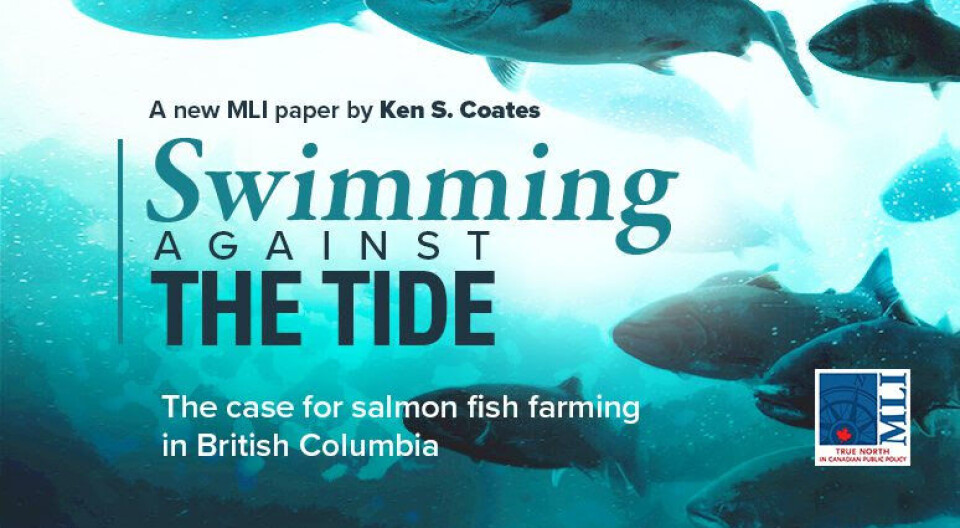
Think-tank report calls for Canadian U-turn over BC salmon farms ban
The Canadian government’s decision to ban open-net salmon farming in British Columbia by 2029 is a politically driven policy that will devastate rural communities, undermine Indigenous rights, and fail to restore wild salmon populations, according to a new report from the Macdonald-Laurier Institute, a non-partisan, independent national public policy think tank.
The report was written by the Institute’s director of Indigenous Affairs, Ken Coates.
It highlights how the ban, which Coates says was driven by activist pressure rather than scientific evidence, will eliminate thousands of jobs, disrupt local economies, and erase a vital industry that supplies sustainable seafood to Canada and global markets. Fisheries and Oceans Canada’s own research has not found conclusive evidence that salmon farms harm wild stocks.
The report notes that First Nations communities that have partnered with the salmon farming industry will face significant economic hardship. Many indigenous groups have embraced aquaculture as a path to prosperity, yet the government’s ban disregards their autonomy and economic self-determination.
Indigenous rights
“Those First Nations that support and engage with the salmon farming industry assert that they have the right to determine the use of their waters,” writes Coates. “They respect, in full, the right of other First Nations to reject the placement of fish farms in their territories and expect the same respect and autonomy in return.”
Rather than banning salmon farming, the report calls for:
- Science-based policy-making that follows peer-reviewed research rather than activist campaigns.
- Investment in real conservation efforts to tackle wild salmon decline, including habitat restoration and stronger regulation of Alaskan overfishing.
- Support for aquaculture innovation, ensuring Canada remains competitive in global seafood markets.
A test of commitment
“Canada and British Columbia have indicated their commitment to UNDRIP (United Nations Declaration on the Rights of Indigenous Peoples), but they have stopped well short of recognising the full implications of First Nations autonomy,” Coates argues. “The salmon farming issue provides an excellent opportunity to test the government’s commitment to Indigenous rights.”
Countries like Norway, Scotland, and Chile have strengthened regulations and invested in new technology without banning fish farms, says Coates, who is also a professor of Indigenous Governance at Yukon University and has worked as a consultant for Indigenous groups and governments in Canada, New Zealand, and Australia. He says Canada is taking the wrong path, risking its position as a leader in sustainable aquaculture.
He calls for the federal government to reconsider its approach before irreversible damage is done.
























































